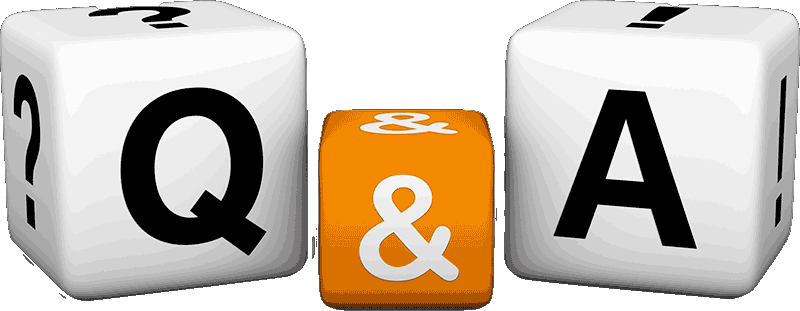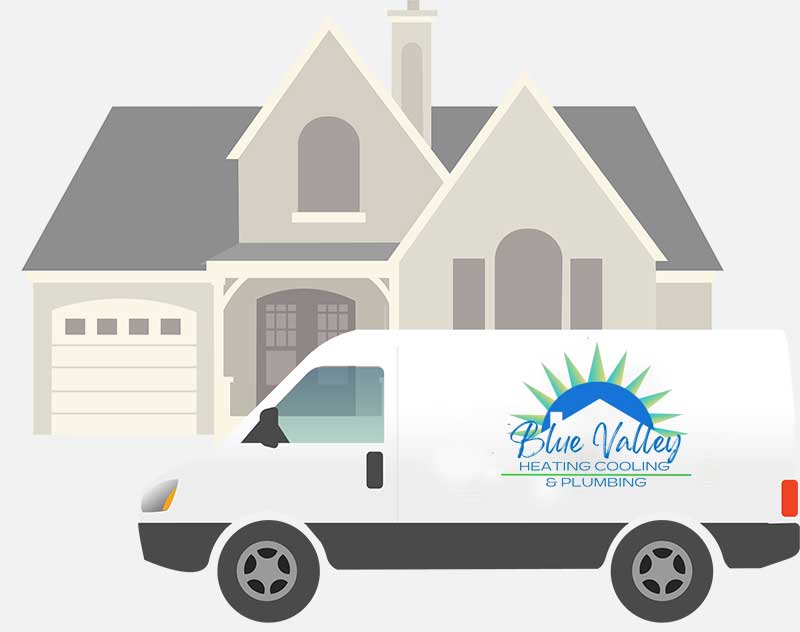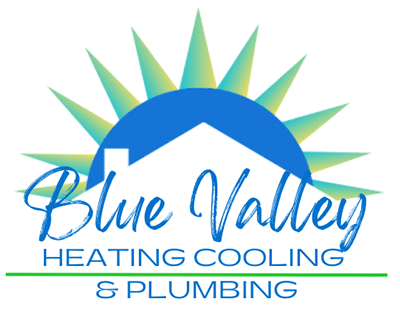Frequently Asked Questions (HVAC FAQs)
Blue Valleys Heating and Cooling answering Frequently Asked Questions (HVAC FAQs) About HVAC Systems and Services

Your Comprehensive Guide to Understanding Your HVAC System
Welcome to our HVAC FAQs page, where we address common inquiries regarding HVAC projects. Here you can find helpful tips for detecting AC and heater issues, and much more. Whether you’re curious about the progress of your HVAC project or seeking advice on recognizing signs of malfunction in your system, we’ve got you covered. Browse through our responses to gain valuable insights and solutions to ensure your HVAC system operates at its best!
Usually, it is the outdoor fan that is to blame here. If it can’t prevent the overheating of the AC compressor, this may cause the safety to trip. This is true either if the fan is not working properly or has stopped functioning altogether. Also a plugged condenser coil or bad capacitor can be the issue.
You will need a highly reliable residential air conditioning service to take care of the outdoor fan, repair any damages to the compressor, and so on. Just remember, if the coolant does not flow freely through the compressor coils, your air conditioning unit will not work.
If the coils get frozen, it may be due to a clogged filter, leak in the system or simply turning your AC down at night, which is bad for the system.
Burnt wiring can cause fires, so don’t ignore them.
You should never delay calling an AC repair service to fix the issue. And even after that, you’ll need to maintain the unit well, replace the filters when needed, and keep everything clean from all sorts of dust and debris.
Your HVAC filter is bound to pick up dirt, this is what preserves the indoor air quality of your house. However, after some time, the dirt will begin to accumulate and clog the filters. When this happens, your HVAC unit will need to do more work. It can result in wasting more energy. In some cases consume less energy due to the motor giving up due to static pressure.
Ideally, you should check monthly and change as needed. Otherwise, you’ll notice dust indoors as well. If that is the case, it might not be a bad idea to get a home air quality test.
Whatever the results, you’ll have to act fast.
HVAC systems can produce a normal level of sound when working, and that’s okay. However, if you feel that your unit is being a bit too noisy, then it may have something to do with age or insulation. Whatever the case, be sure to check the noise rating of your unit to make sure that it is indeed being noisy.
If your unit is being noisier than it should be, don’t delay calling a trusted HVAC maintenance service provider to get things fixed. This is important because your unit can create noise pollution issues even if the sound is not performance-related.
If the blower motor of your HVAC unit has to work more than its optimal capacity due to clogged filters, it will most likely trip. The extra strain on your system can be dangerous as it can irreparably damage the whole unit. A tripped circuit breaker/blown fuses shuts down the HVAC unit to prevent this from happening.
If the fuse blew, contact a local HVAC repair contractor as soon as possible.
Your HVAC unit can suffer from leakages in the following areas:
- Drain lines (if they become damaged or clogged)
- Condensate trap
- Evaporator drain pan
- Exhaust piping
No matter what the case, leaking is never good for your HVAC unit. Pouring bleach into the drain lines is a good preventive measure but it does not parallel sophisticated HVAC preventative maintenance.
A furnace may not start up if the flame sensor is dirty or if there is something wrong with the burner or the pilot. Or perhaps the ignition is faulty, or there is something wrong with the gas supply. In all such cases, you must call an emergency furnace repair company to get things sorted out.
Since the system involves natural gas and high voltage, it is best not to deal with it on your own.
In short, yes. Here’s why:
- The components have a paired design, they are meant to work together.
- HVAC technology has seen major leaps in the recent past, and you should get both components from the same technological generation for optimal performance.
- Matching units will work more efficiently.
- Consider the age of your current equipment, if it is old, consider replacing it.
- A new system will have a new warranty period.
- Replacing the complete system will offer more reliability and comfort too.
Be sure to seek consultation from the HVAC unit replacement crew before you finalize a decision.
Your home comfort system is a machine, and like any other machine, it demands timely maintenance and good care. The same is also true for any other piece of machinery you’d ever come across. For instance, your car which needs timely cleaning, oil change, and whatnot.
Thus, it should come as no surprise that a home comfort system also needs regular preventive maintenance. You can make the best of things by getting a local HVAC service like Blue Valley Heating and Cooling on board.
It is in the IFGC + the IBC (International fuel and gas code + International building code) code book that a mechanical device needs regular maintenance section 102.3.
This is a no-brainer: your AC and furnace require regular maintenance. As with any other machine, they need timely cleaning up. Your equiment will perform much better if taken good care of. Even if your unit is new, it is best to go for regular cleaning.
This way, you’ll be keeping up your end of the commitment of the warranty and prolonging the longevity of your product. Be sure to get a professional AC repair services provider such as Blue Valley Heating and Cooling to maximize the results.
Yes, that’s perfectly normal.
Firstly, that’s not smoke, it’s steam.
What happens is that the outdoor coil of your heat pump will accumulate frost/ice over it after some time. Your heat pump will undergo a defrost cycle. This simply means that it will thaw this frost before resuming its function once again.
The puff of smoke is water vapor from this defrosting routine.
No one likes overly humid conditions or dry ones. Humidity, when it is in an optimal range, can create a serene and comfortable indoor environment. It shares a direct correlation with indoor air quality. This means that you can’t have a nice, airy interior without some humidity.
If you let your home’s humidity fall, you’ll find it harder to breathe. The moisture from your skin will be zapped away, and it can also cause health issues. Conversely, too much humidity can also make breathing harder and cause mold growth.
Thus the optimal levels of humidity, around 35-50% are what you should be going for.
Feel free to contact us for a whole-house humidifier installation that suits your budget and delivers the desired results.
The indoor air is recirculated again and again through our homes. This means that your heating and cooling system will pick up on all the dust, dirt, and pollen you may have in your home’s interior. If you breathe in this stuff, it could be extremely harmful.
Thus it is best to keep your indoor recirculated air free from such particles.
This is exactly what an air filter does and why it is so important.
Gas furnaces produce carbon monoxide as part of their operation. Carbon monoxide (CO) is an odorless and poisonous gas, aptly dubbed as a silent killer. If your home has beyond the threshold level of this gas in its indoor air, then you will be at risk of carbon monoxide poisoning.
A wise investment here would be to get a carbon monoxide detector that can help you detect the level of carbon monoxide in your home with relative ease. Blue Valley Heating and Cooling can provide you with a 5-year warranty. Moreover, you should consider timely gas furnace maintenance.
The frequency of air filter change depends on:
- The type of air filter
- The indoor air quality
- How many pets you have in your home
- The size of your house
- Levels of air pollution in your area
- Whether you have any allergies
Basic air filters, up to 4”, should be replaced after 6 months. One inch filters should be checked monthly and charged as needed.
For rural and less densely populated areas, an annual filter change may be enough.
Air Filter Change Frequency Recommendations
Here are a couple of considerations in this regard:
- For a lone occupant with no pets and suffering from no allergies, an annual change will be enough, although 6 months is more preferable.
- 90 days is the optimal time limit for an air filter change in suburban areas.
- If you have a single pet (cat/dog), then change the filter after 60 days.
- For a person with allergies or if the home has more than one pet, go for a filter change every 20-45 days.
Once scheduled, we’ll send over your new HVAC unit, remove the old one (if you had one already), install this new unit and make sure it works properly. Then we’ll haul away the old unit and get it recycled according to EPA regulations, which is an integral part of our HVAC unit replacement services.
Usually, between 8-10 hours, so your air conditioning installation will be done by the end of the day.
At Blue Valley Heating and Cooling, we take our work very seriously, thus our air conditioning installation protocol involves an important preparation phase as well which ensures complete safety and proper installation. We’ve been in the business for 35+ years now and it has worked flawlessly for us and our clients.
If you mean to ask whether your project will be too big or small for us, then we don’t have any constraints in that area, we deal with all sorts of projects.
We work with all the brands used in Longmont. All our our experts are NATE-certified. Also, we offer a satisfaction guarantee of up to 10 years. We also specialize in Rheem, Trane, and Mitsubishi.
We offer financing to help clients through the installation phase without any financial issues.
If you choose to go for our exclusive Advantage Program™ for a low monthly subscription, not only will you get a new heating/cooling system but also enjoy repairs and service without any extra cost.
Yes, our workers are both licensed and insured in each service area we operate in.
Since 1996, however, our ties go back as far as 1977 when our founder Monte started Valley Energy, then Blue Valley Energy and evolved into Blue Valley Heating and Cooling.
Got More Questions?
Explore our FAQs to find answers to common queries about our HVAC services. Still have questions? Contact us for personalized assistance!
Call us now (720) 204-8139 or schedule a consultation!





